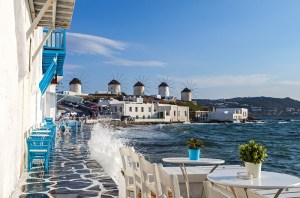With European elections coming up in May 2019, you probably want to know how the European Union impacts your daily life, before you think about voting. In the latest in a series of posts on what Europe does for you, your family, your business and your wellbeing, we look at what Europe does for people living on islands.
People living on islands face a number of challenges. In most cases, islands are not self-sufficient in agricultural and industrial products or tertiary sector services. As the majority of products and services have to be transported to islands, islanders have to pay considerably higher prices for these goods, adding to their cost of living. Travelling to other destinations may be expensive and may take a long time as islands may be quite remote. Job prospects can be limited.

Many islands are located on the periphery of a Member State, or constitute border regions, placing considerable limitations on their potential for economic growth. They usually possess limited public resources in health and education. In addition, the EU’s southern islands have seen an influx of migrants, while lacking the resources needed for their accommodation or integration. Islands are usually reliant on imported fossil fuels and dependent on mainland energy networks. They have fragile ecosystems.
The EU plays an active role in helping people in all EU areas to improve their living conditions through the use of various programmes and actions. These focus mostly on the areas of innovation, sustainable management of natural resources, investment in renewable energy and support for small and medium-sized companies. A number of other EU funds can further contribute to the support of these regions in the areas of immigration, education, culture, etc. In addition, EU regulations allow Member States to organise public services to ensure regular connections with island territories.
Further information
- EPRS briefing: Islands of the EU: Taking account of their specific needs in EU policy, 2016. http://www.europarl.europa.eu/RegData/etudes/BRIE/2016/573960/EPRS_BRI(2016)573960_EN.pdf
- EPRS Guide to EU Funding 2014-2020 http://www.europarl.europa.eu/EPRS/Funding_Guide.pdf

![People living on islands [What Europe does for you]](https://i0.wp.com/epthinktank.eu/wp-content/uploads/2018/05/shutterstock_1010633266.jpg?fit=1000%2C661&ssl=1)





